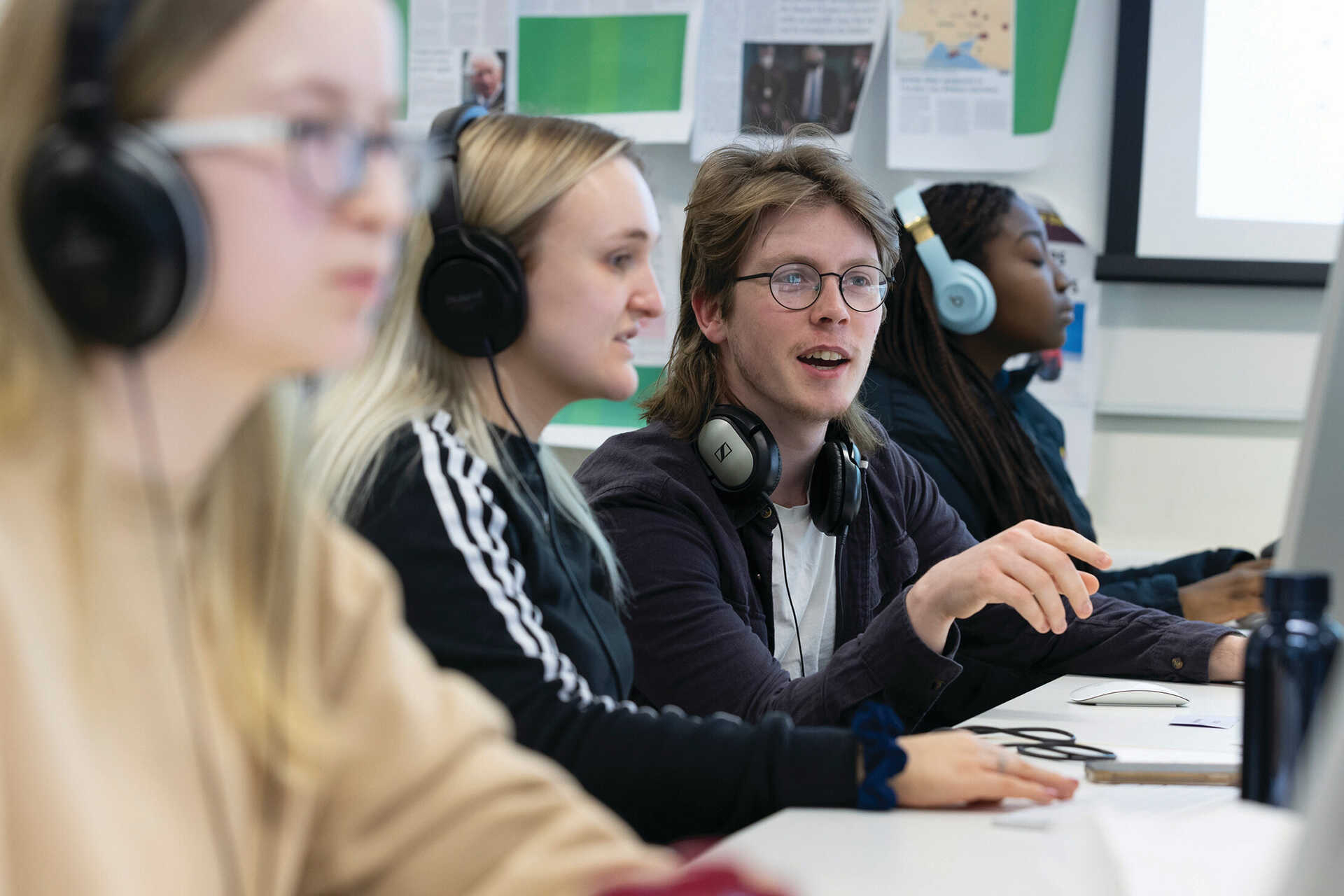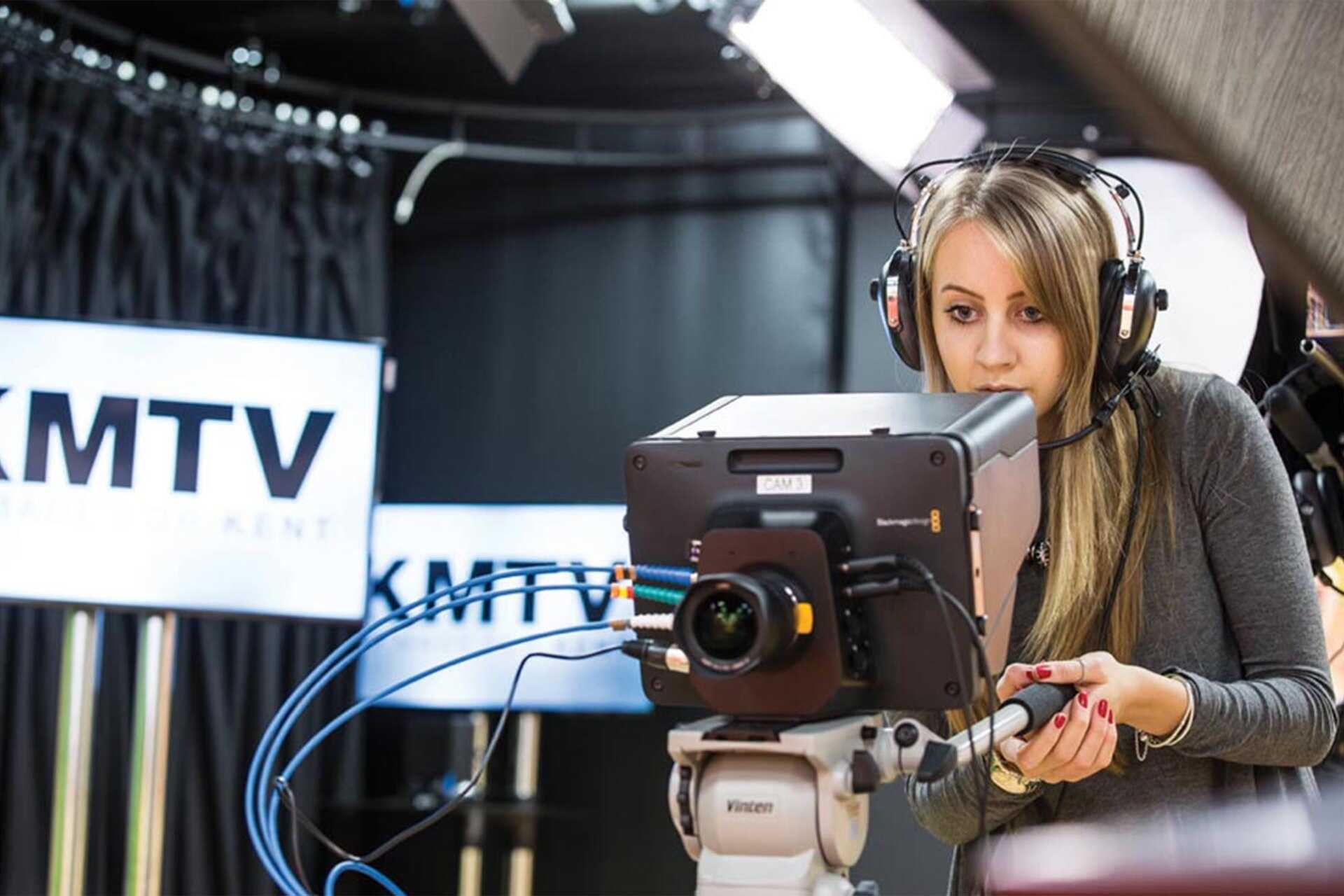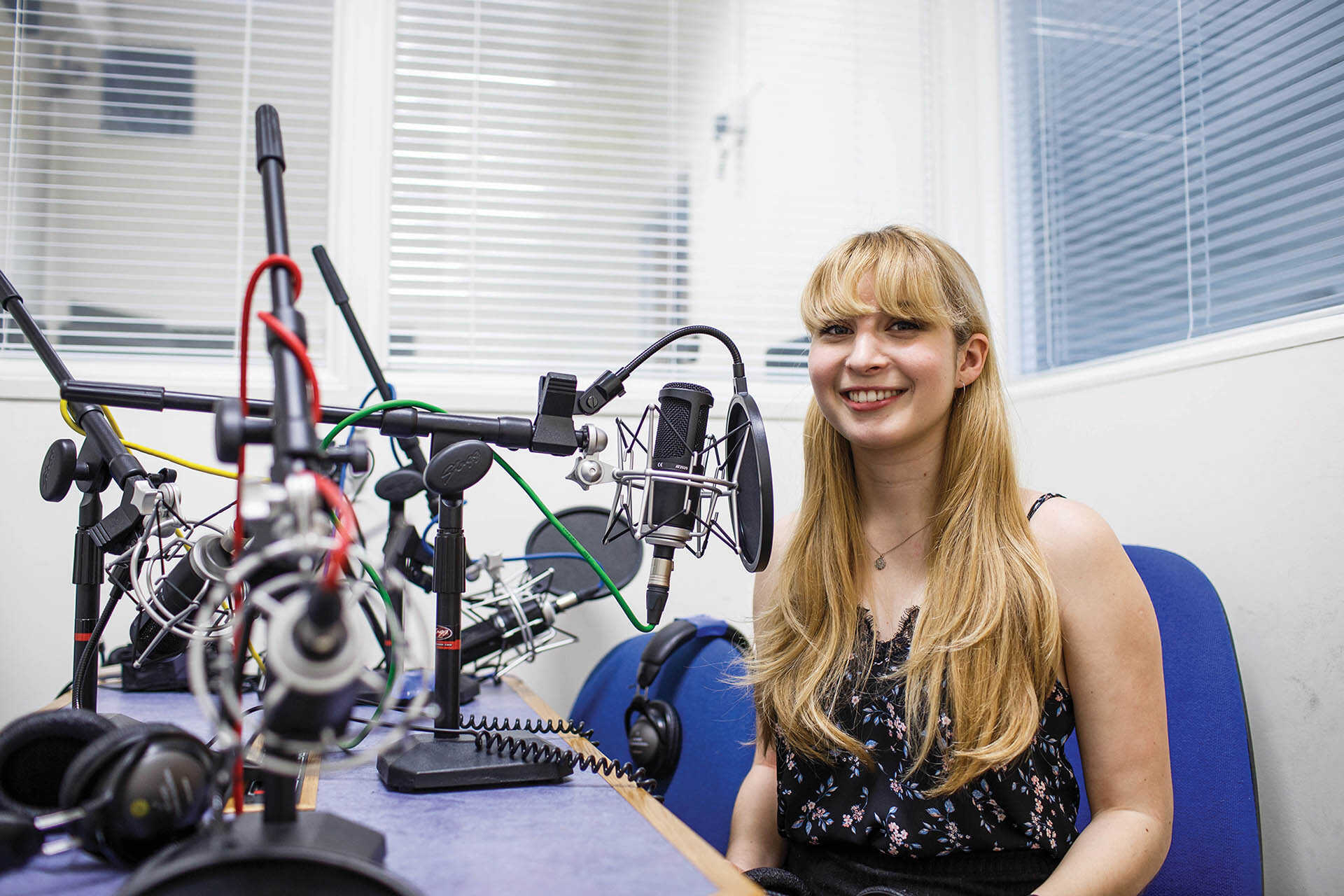
In a world hungry for news, the ultra-competitive media market needs versatile, multimedia journalists with cutting-edge skills and a highly developed awareness of ethics.
Our Journalism degree is based in state-of-the-art newsrooms complete with dedicated radio and television studios, and editing and production facilities. You learn to write and report in text, on air and for the internet. You also have regular access to work placements and internships at KMTV, our award-winning Ofcom-licensed professional TV channel that broadcasts from the campus.
The Centre for Journalism at Kent is leading the development of journalism as an academic discipline rooted in professional newsroom practice. On our professionally accredited programme, you study for an honours degree that includes history, politics and law while completing the National Council for the Training of Journalists’ (NCTJ) Diploma in Journalism. (*See fees and funding for additional costs.)

Emma's passion took her from the student newsrooms and KMTV to a job as an output producer at Sky News.
Communications and Media Studies at Kent was ranked 6th for graduate prospects in The Complete University Guide 2023.

Our students can learn from mentors in the industry thanks to our partnership with the John Schofield Trust.
Our Journalism BA is fully accredited by the National Council for the Training of Journalists (NCTJ).

Our typical offer levels are listed below and include indicative contextual offers. If you hold alternative qualifications just get in touch and we'll be glad to discuss these with you.
BBB
DDM
120 Tariff points from your IB Diploma, Typically H5, H6, H6 or equivalent.
English Language at grade C/4
Pass the University of Kent International Foundation Programme.
The University will consider applicants holding T level qualifications in subjects closely aligned to the course.
Pass the Access to HE Diploma with 45 credits at level 3, of which 30 should be passed at Distinction, 12 at Merit, and 3 at Pass; or 33 at Distinction, 6 at Merit, and 6 at Pass.
Applicants must be able to demonstrate a serious interest in and commitment to journalism.
We welcome applications from international students with internationally recognised qualifications. A high level of English (equivalent to a native speaker) is essential.
This module listing is based on the current curriculum and may change year to year in response to new curriculum developments and innovation. You study a combination of compulsory and optional modules and may also be able to take ‘elective’ modules from other degrees, tailoring your studies to your ambitions.
Each day in the Centre for Journalism begins with an editorial conference. Students and staff gather in the newsrooms to discuss the top stories on the local, national and international news agendas and to consider how they have been reported in newspapers, by broadcasters and online.
Teaching is by a variety of methods including masterclasses, lectures, seminars, films and small group discussions. Professional skills are taught in a live newsroom environment, which replicates the atmosphere of a working multimedia newsroom. You participate in regular Live News Days, during which you work to deadline to produce live radio and television bulletins and newspaper pages, and to update websites. There are frequent guest lectures and masterclasses by working journalists and editors, including network broadcasters and editors of national and regional newspapers and magazines.
Assessment includes coursework (such as academic essays, television, radio and online news reports and newspaper articles) and examinations. Students compile portfolios of reports. In your final year, you complete an extended project in journalism, which may take the form of a television or radio documentary, an extended newspaper or magazine article, or a web report. You may also choose to write an academic dissertation.
There is a minimum of 21 hours contact time per week in your first and second year, in addition to which all students receive guaranteed one-to-one feedback on their assignments and have regular meetings with their personal academic adviser. You should expect to do a minimum of 15 additional hours personal study per week.
Students undergo assessment for the NCTJ Diploma in Journalism via examinations set by the NCTJ. There is a fee for each of these examinations, which students must pay in addition to their tuition fees. See the NCTJ website for current NCTJ exam fees.
For a student studying full time, each academic year of the programme will comprise 1200 learning hours which include both direct contact hours and private study hours. The precise breakdown of hours will be subject dependent and will vary according to modules.
Methods of assessment will vary according to subject specialism and individual modules.
Please refer to the individual module details under Course Structure.
For programme aims and learning outcomes please see the programme specification.
My course has geared me up perfectly for life as a journalist.

This degree prepares you to work across the broadcast, print and online media. You learn to communicate with non-specialist audiences and to present your opinion coherently and with passion.
Organisations employing our graduates include:
Other graduates have secured positions in communications roles for charities, NGOs and campaign groups or political parties.

The 2024/25 annual tuition fees for this course are:
For details of when and how to pay fees and charges, please see our Student Finance Guide.
For students continuing on this programme, fees will increase year on year by no more than RPI + 3% in each academic year of study except where regulated.*
The University will assess your fee status as part of the application process. If you are uncertain about your fee status you may wish to seek advice from UKCISA before applying.
Students undergo assessment for the NCTJ Diploma in Journalism via examinations set by the NCTJ. There is a fee for each of these examinations, which students must pay in addition to their tuition fees. See the NCTJ website for current NCTJ exam fees.
Find out more about accommodation and living costs, plus general additional costs that you may pay when studying at Kent.
Kent offers generous financial support schemes to assist eligible undergraduate students during their studies. See our funding page for more details.

We have a range of subject-specific awards and scholarships for academic, sporting and musical achievement.
We welcome applications from students all around the world with a wide range of international qualifications.
Student Life

Kent ranked top 50 in the The Complete University Guide 2023 and The Times Good University Guide 2023.
Kent Sport
Kent has risen 11 places in THE’s REF 2021 ranking, confirming us as a leading research university.

An unmissable part of your student experience.